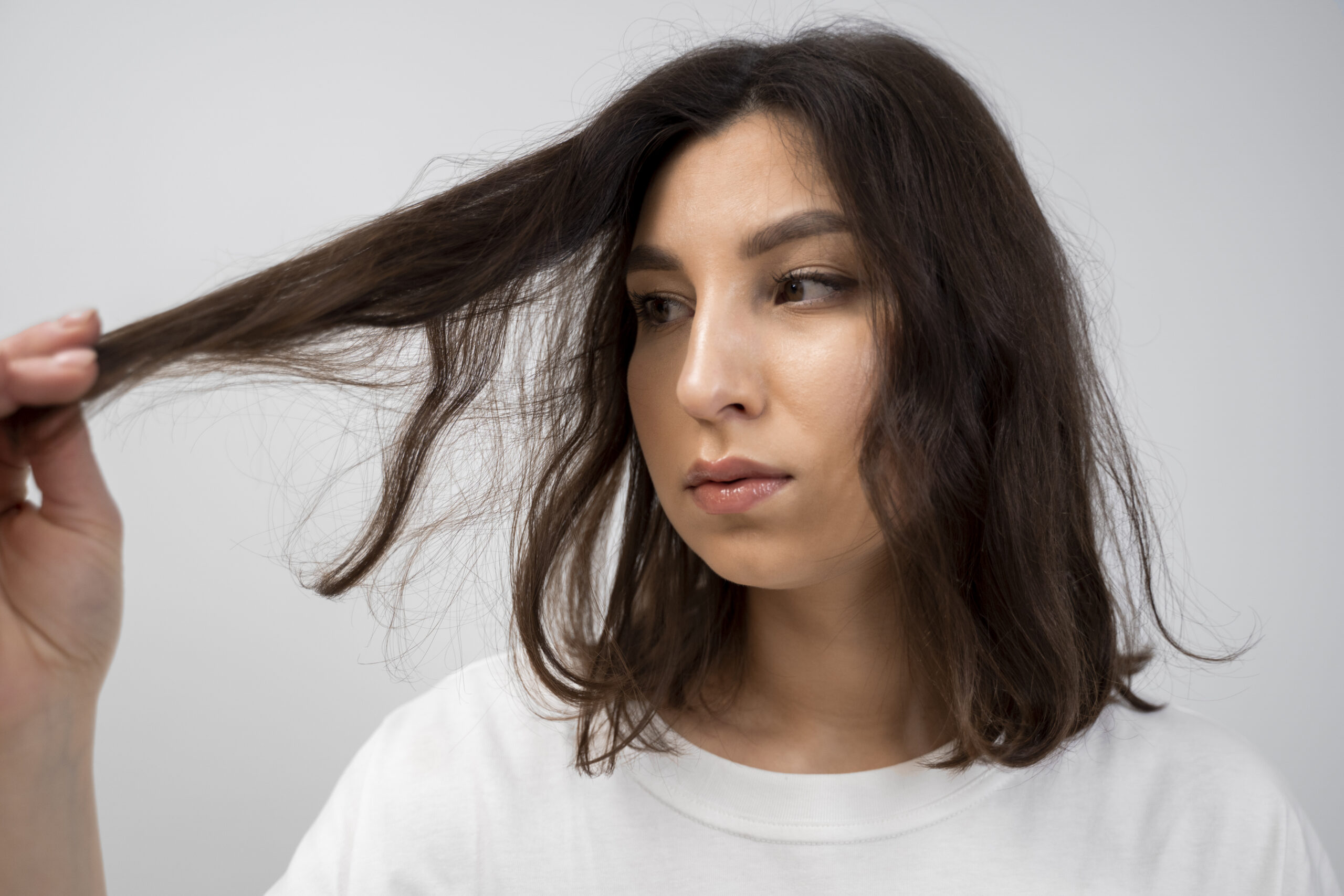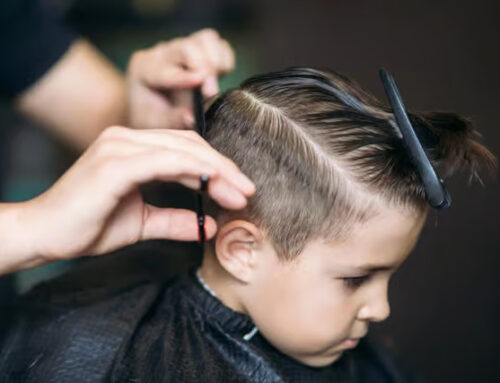Introduction:
Thinning hair can be a distressing experience for many individuals, impacting self-confidence and overall well-being. While it’s natural for hair to thin with age, understanding the underlying causes can help address the issue effectively. In this guide, we’ll explore the various factors that contribute to thinning hair, from genetics to medication, shedding light on why it occurs and what steps can be taken to manage it.
Common Causes of thinning Hair
Genetics:
Genetics play a significant role in determining hair thickness and density. If thinning hair runs in your family, you may be genetically predisposed to experiencing it yourself. This is often referred to as male or female pattern baldness, which is hereditary and typically occurs gradually over time. Understanding your family history of hair loss can provide insight into your own susceptibility.
Stress:
Stress is another common cause of thinning hair, often leading to a condition known as telogen effluvium. During periods of high stress, such as illness, trauma, or significant life changes, the body may enter a state of shock, causing hair follicles to prematurely enter the resting phase of the hair growth cycle. This can result in excessive shedding and noticeable thinning of the hair. Managing stress through relaxation techniques, exercise, and adequate sleep can help mitigate its effects on hair health.
Hormonal Changes:
Fluctuations in hormone levels can also contribute to thinning hair, particularly in women. Hormonal changes during pregnancy, childbirth, menopause, or conditions such as polycystic ovary syndrome (PCOS) can disrupt the hair growth cycle, leading to increased shedding and reduced hair density. Hormone replacement therapy or other medical interventions may be necessary to address hormonal imbalances and alleviate hair thinning associated with these changes.
Nutrient Deficiencies:
A balanced diet rich in essential nutrients is crucial for maintaining healthy hair growth. Nutrient deficiencies, such as iron, zinc, vitamin D, and biotin, can contribute to hair thinning and loss. Iron deficiency, in particular, is closely linked to a type of hair loss called telogen effluvium. Incorporating nutrient-rich foods into your diet or taking supplements as needed can help ensure that your body has the necessary building blocks for strong, healthy hair.
-
Iron:
Found in foods such as lean meats, poultry, fish, beans, and fortified cereals.
-
Zinc:
Found in foods such as nuts, seeds, whole grains, and legumes.
-
Vitamin D:
Obtained through sun exposure and fortified foods such as dairy products, fatty fish, and fortified cereals.
-
Biotin:
Found in foods such as eggs, nuts, seeds, and leafy greens.
Medications:
Certain medications can have side effects that include hair thinning or loss. These may include:
-
Chemotherapy drugs
-
Anticoagulants
-
Antidepressants
-
Hormonal medications
-
Immunosuppressants
-
Acne medications
If you’re experiencing thinning hair as a result of medication, it’s essential to consult with your healthcare provider. They may be able to adjust your dosage or prescribe alternative medications with fewer side effects on hair health.
Diet and Lifestyle:
In addition to genetics and medical factors, your diet and lifestyle habits can also influence the health of your hair. Poor nutrition, excessive styling, and certain habits can contribute to thinning hair. Here are some dietary and lifestyle factors to consider:
-
Poor Nutrition:
A diet lacking in essential nutrients can weaken hair follicles and lead to thinning hair. Ensure that you’re consuming a balanced diet rich in vitamins, minerals, protein, and healthy fats to support optimal hair growth.
-
Excessive Styling:
Over-styling your hair with heat tools, chemical treatments, and tight hairstyles can damage the hair shaft and contribute to breakage and thinning. Limit the use of heat styling tools, avoid harsh chemical treatments, and opt for looser hairstyles to minimize damage.
-
Smoking:
Smoking has been linked to hair loss and thinning in both men and women. The chemicals in cigarettes can damage hair follicles and inhibit hair growth. Quitting smoking can improve overall health and may help reduce hair thinning over time.
-
Stress Management:
Chronic stress can disrupt the hair growth cycle and contribute to thinning hair. Practice stress-reducing techniques such as meditation, yoga, deep breathing exercises, and spending time outdoors to promote relaxation and support healthy hair growth.
-
Scalp Health:
A healthy scalp is essential for maintaining strong, thick hair. Keep your scalp clean and free from buildup by washing regularly with a gentle shampoo. Massaging the scalp can also help stimulate blood flow and promote hair growth.
When to look professional help
If you’re experiencing significant hair thinning or loss, it’s essential to seek professional help from a dermatologist or trichologist. These specialists can assess your hair and scalp health, identify underlying causes of thinning, and recommend appropriate treatment options. Depending on the severity of your condition, treatment may include topical medications, oral supplements, laser therapy, or hair transplant surgery. Additionally, considering alternative options such as visiting a reputable hair salon like Numi Hair can provide personalized treatment and care. Numi Hair, an award-winning salon, offers tailored solutions to address hair thinning concerns, providing individualized attention and expertise to help restore hair health and confidence.
FAQ
Are genetics a significant factor in hair thinning?
Yes, genetics play a significant role in determining hair thickness and density.
If thinning hair runs in your family, you may be genetically predisposed to experiencing it yourself. This is often referred to as male or female pattern baldness, which is hereditary and typically occurs gradually over time.
Can stress contribute to hair thinning?
Yes, stress can contribute to hair thinning. During periods of high stress, such as illness, trauma, or significant life changes,
If thinning hair runs in your family, you may be genetically predisposed to experiencing it yourself. This is often referred to as male or female pattern baldness, which is hereditary and typically occurs gradually over time.
How do hormonal changes affect hair thinning?
Hormonal changes, particularly in women, can contribute to hair thinning.
Fluctuations in hormone levels during pregnancy, childbirth, menopause, or conditions such as polycystic ovary syndrome (PCOS) can disrupt the hair growth cycle, leading to increased shedding and reduced hair density.
What role do nutrient deficiencies play in hair thinning?
Nutrient deficiencies, such as iron, zinc, vitamin D, and biotin, can contribute to hair thinning and loss.
Iron deficiency, in particular, is closely linked to a type of hair loss called telogen effluvium. Ensuring a balanced diet rich in essential nutrients is crucial for maintaining healthy hair growth.






